cooperation & art-lab 2024
guilt & shame
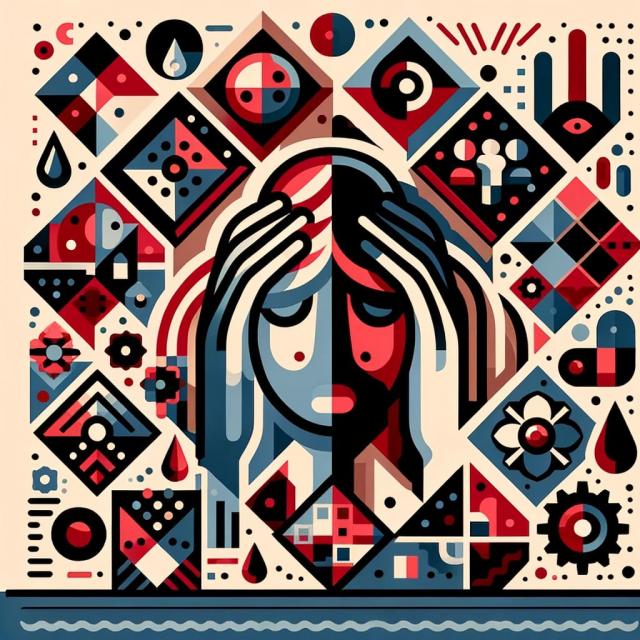
In 2024, Platform TU Mariupol and bridgeworks embark on a process of Ukrainian-German cultural exchange. Together, we explore the complex themes of "guilt & shame." To do so, we initiate various transculturalnetworking and dialogue formats, as well as artistic co-productions.
As a transcultural collective, bridgeworks works annually or annually in changing constellations with artists from different places in the world and from different cultural contexts on a jointly selected overarching theme.
art-lab 2024
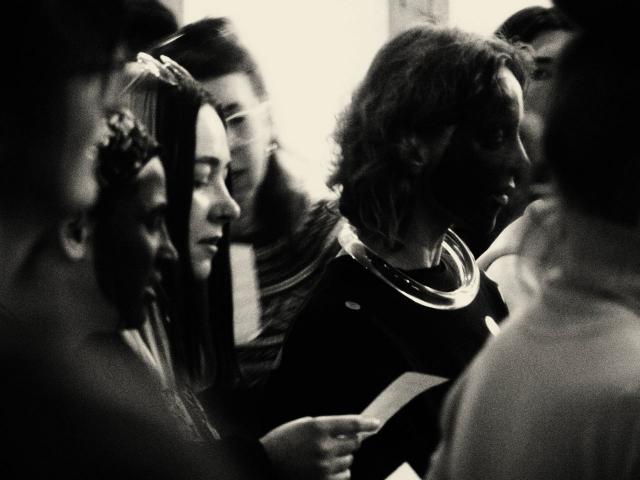
As in every cooperation, we start with a joint art-lab, an international encounter laboratory and crossover of genres: In the art-lab, around 20 artists with different cultural identities and creative focuses enter into an intensive artistic research and exchange phase. The art-lab is underpinned by input from international speakers from various academic disciplines (sociology, political sciences, psychology, etc.).
The art-lab aims to expand the participants' network and impart transcultural competences and interdisciplinary skills. As a production-independent space, it opens up the opportunity to engage in an intensive exchange and research process together with international artists. The process involves local multipliers and knowledge transfer formats - and usually culminates in a public showing.
The art-lab is organised according to the principle of fair cooperation as a two-week concept (two weeks in Germany, two weeks at the location of our cooperation partners) and takes place in English.
We believe that knowledge can only be gained through dialogue and that this can create artistic added value and a starting point for joint artistic processes and projects.
Theme for 2024: guilt & shame
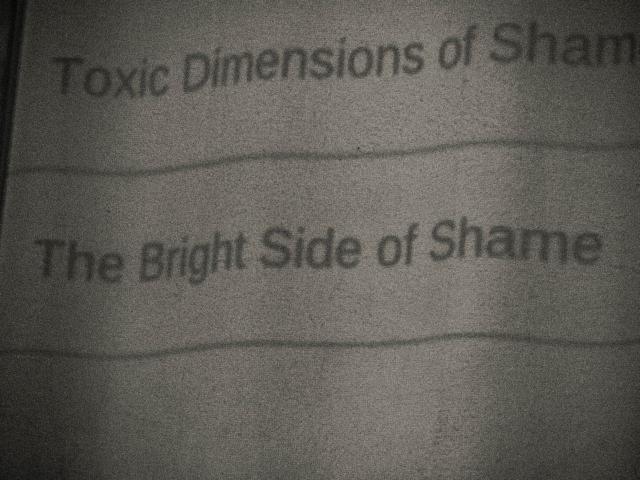
Guilt and shame – two powerful and complex emotions deeply rooted in our human psyche, defining our actions, decisions, personal orientation, and our relationships with each other and the world. Both individually and collectively, it seems that this pair of emotions exerts its influence and affects us more profoundly than it may initially appear.
This focus may seem like a very psychological and personal exploration. However, hasn't the public discourse between Ukraine and Germany revealed that personally perceived differences and commonalities often originate from culturally specific values and historically conditioned sensibilities?
Exploring between collective & individual
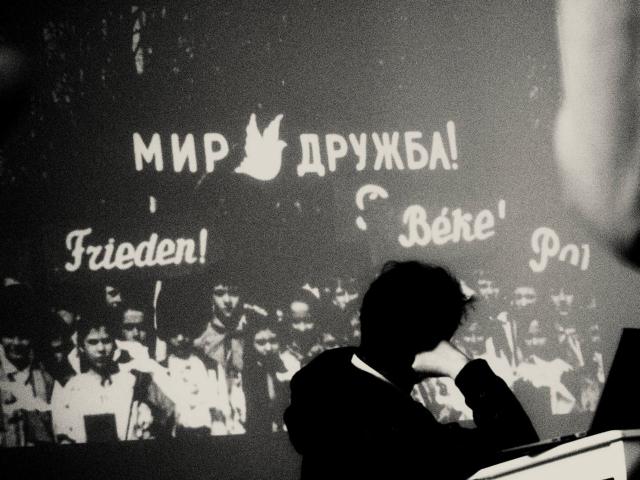
Both the collective sense of guilt over the historical crimes of the Germans during the time of National Socialism and the shame currently felt by many Ukrainians as they follow the news about the war in their homeland from their"safe" exile can be seen as indicators that guilt and shame characterize much more than individual experiences.
In psychological research, this pair of emotions plays a central role, especially when it comes to understanding individual and group behavior, social interaction, and cultural norms. However, what is considered shameful or guilt-inducing in one culture may be seen as acceptable or desired in another. To engage in an artistic dialogue, we should question our culture-specific value compass as well as our respective historical references and political conditions.
But where do we personally position ourselves in this tension between the collective and the individual? Why do we feel shame about the guilt that others bear or have borne? If shared suffering means half the pain, does the same apply to guilt? And if it does, does this fact not obligate us to take action or at least adopt a stance?
Our partners: TU Mariupol
The cultural center Platform TU, affiliated with the TU Mariupol network, was created in 2016 in Mariupol, the easternmost city in Ukraine, by people who fled the war, were united by it, and began to fight against the war through cultural activities. The initiative promotes human rights and freedom through culture and contemporary art and encourages critical thinking on issues such as gender inequality, discrimination, right-wing extremism, paternalism, refugees, and totalitarian propaganda.
Prior to February 24, 2022, we held discussions with Diana Berg, the founder of the Platform TU cultural center in Mariupol. Together, we developed initial ideas on what a German-Ukrainian cooperation could look like. The events that followed from late February are known to all of us. Currently, Ukrainian artists are located in various places in Ukraine, neighboring countries, and Germany.
artistic direction tandem
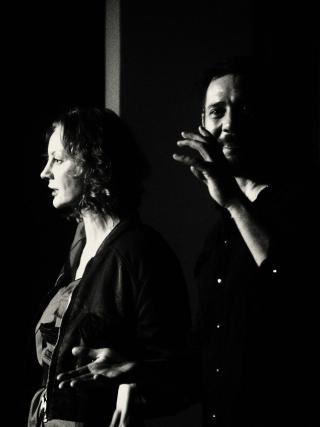
diana berg
... is a curator, activist and artist. She was instrumental in organising the Donetsk protest movement in Ukraine and fled to Mariupol in 2014 when her hometown was occupied by Russia. Two years later, she founded Platform TU, the centre for social change and the promotion of human freedoms through art and culture, and worked as a curator of the space until Russia attacked the city. She survived the siege and moved to Kyiv. In 2019, she was honoured by the Ukrainian parliament with the State Medal for Services to the Ukrainian People. In July 2022, she coordinated the Ukrainian programme at Documenta 15 in Kassel.
felix banholzer
...is a director, performer, cultural manager and a founding member of bridgeworks. He studied acting at the Staatliche Schauspielschule Stuttgart, theatre directing at the Erasmushogeschool Brussel and cultural and media management at the Hochschule für Musik und Theater Hamburg. Since 2013, he has been working as a freelance theatre maker and artist with a focus on transcultural projects in various constellations and genres. (among others: "WHAT THE FUCK!", "fiction&just&fication", "paralyse", "...you me and the end of everything", "refugee walk", "wohnen.unter.glas").
Positioning
In light of the despicable Russian aggresion against Ukraine, bridgeworks takes a clear stance against the aggressor and condemns the Russian invasion in the strongest terms. Bridgeworks stands in solidarity with our Ukrainian partner institutions, artists, and friends. With Ukrainian culture as our partner, bridgeworks in 2024 becomes a platform for encounters and a voice for Ukrainian voices, thereby sending a clear political signal: solidarity!
With our focus, we embark on a year-long journey of private and political exploration. Together, we examine the artistic, legal, personal, private, and political aspects of guilt and shame. We confront current, provocative, and uncomfortable questions and collectively strive to find answers. We are faced with the challenge of analyzing, understanding, and proactively translating guilt and shame in the context of the Russian aggression.
We are explicitly interested in questions related to attribution of guilt, justice, and legal proceedings in the current situation. What is the state of international law and legality? Which authorities can hold the guilty accountable? How can we artistically address the countless war crimes? Can documentary artistic work contribute to clarifying concrete facts or be used as material in future investigations? What added value can a German perspective as an "observer" of a war bring, beyond a shame-ridden sympathy? Is it not the duty of cultural creators and artists to look at this point and enable new perspectives? Or can art as a form of interpretation and estrangement in this case only be legitimate in conjunction with activist and journalistic formats? Starting from these questions, we begin our research with ourselves as the subject of investigation.
impressions art-lab Berlin, 14-28 April 2024
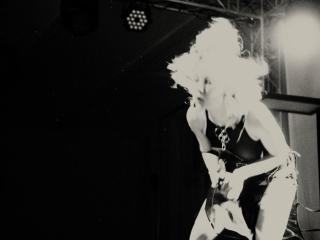
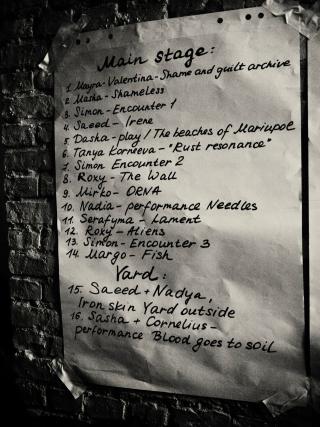
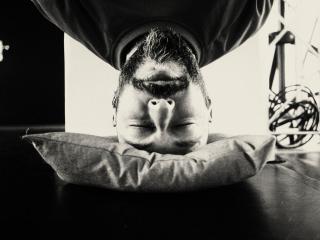
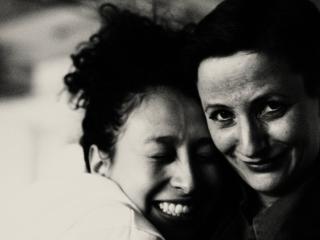
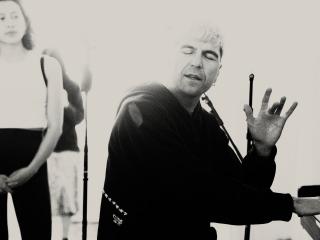
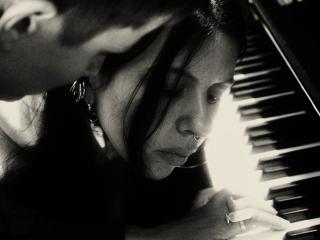
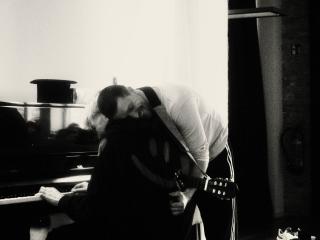
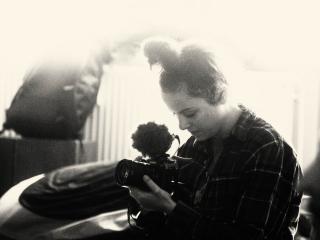
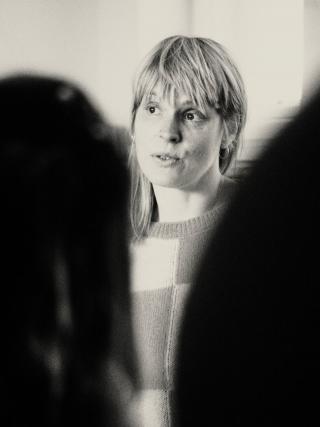

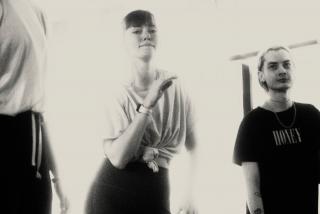
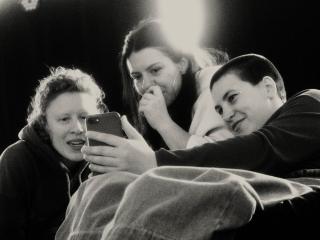

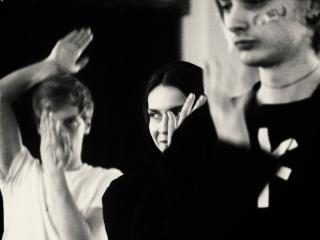
impressions art-lab Tbilissi, 13-21 December 2024
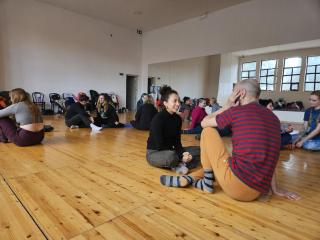
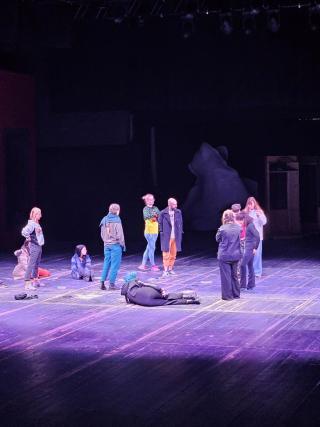
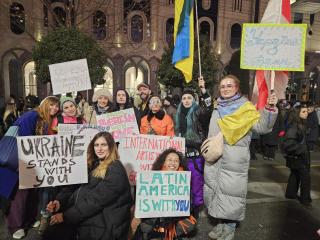
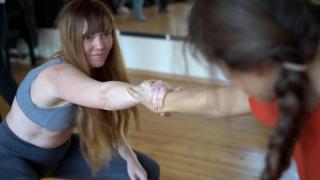
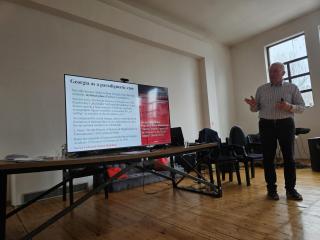
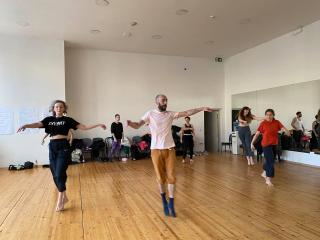
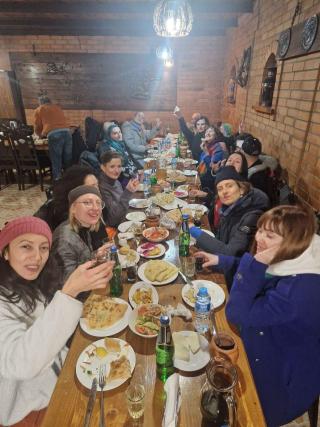
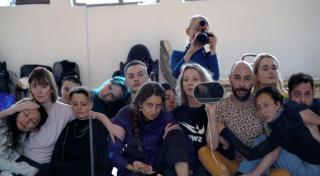
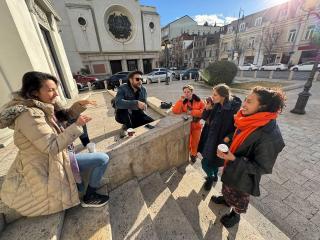
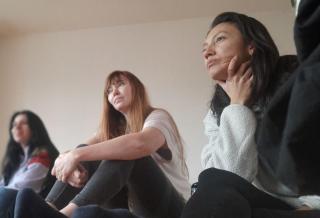
The art-lab in Berlin was supported by Stiftung West-Östliche Begegnungen. The art-lab in Georgia is supported by Bundeszentrale für Politische Bildung.


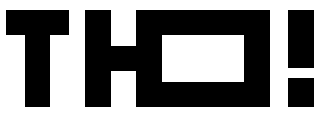
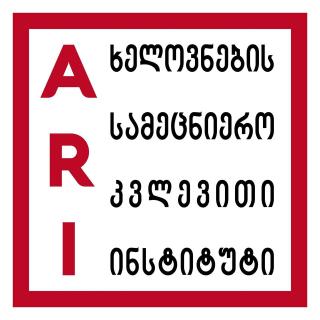
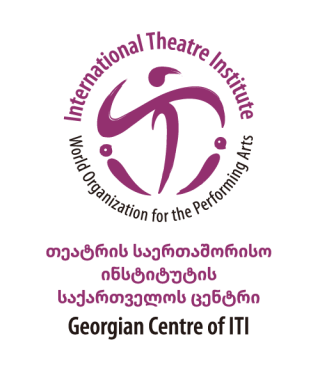
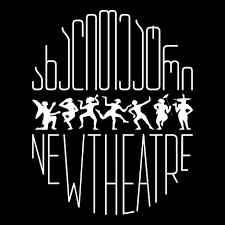
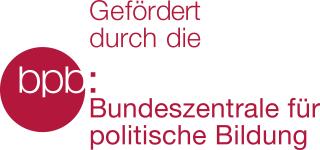
photos: Mirko Borscht
art-lab 2024
Project phase 1:
14-28 April 2024
Hotel Continental – Art Space in Exile, Berlin
www.artspaceinexile.org
Project phase 2:
13-21 December 2024
Tbilissi, Georgien
in partnership with Arts Research Institute of Georgia (ARI)
speaker Berlin
-
Leonhard Menges (University Salzburg): "Moral Philosophy on Guilt & Shame"
-
Elisabeth Vanderheiden (u.a. CEO Global
Institute for Transcultural Research): "Shame as a Ressource"
-
Katya (Vitsche Berlin): conversation about ukrainian protest
-
Zenia Molyar (art critik, member of initiative DE NE DE and coordinator of „Soviet Mosaics in Ukraine”): "Cultural Heritage"
-
Christin Lüttich (u.a. about:change e.V.): "Justice & Powerstructures"
-
Inga Pylypchuk (journalist & director): "Documentary Art"
-
Heike Winkel (Cultural Researcher): "German/Sowjet Guilt"
speakers Tbilissi
Oliver Reisner (Ilia State University Georgia): Cult of Stalin in Georgia
Tatia Kalatozishvili (Social Justice Center Georgia): Psycho-sociological aspects of justice, elections and protests in Georgia
Diego Martin Diaz Córdova (Universidad Nacional de Lanús, Argentinia): Antropological case studies on guilt and shame
Alexandra Clod (artist & psychologist): Psychogram guilt & shame
Saeed Pezeshki-Perez: The You in Me - a practical exercise in empathy
Salomeya’s art collective & Sakutari.otakhi: Gender, Sexuality & Body(-shaming)


